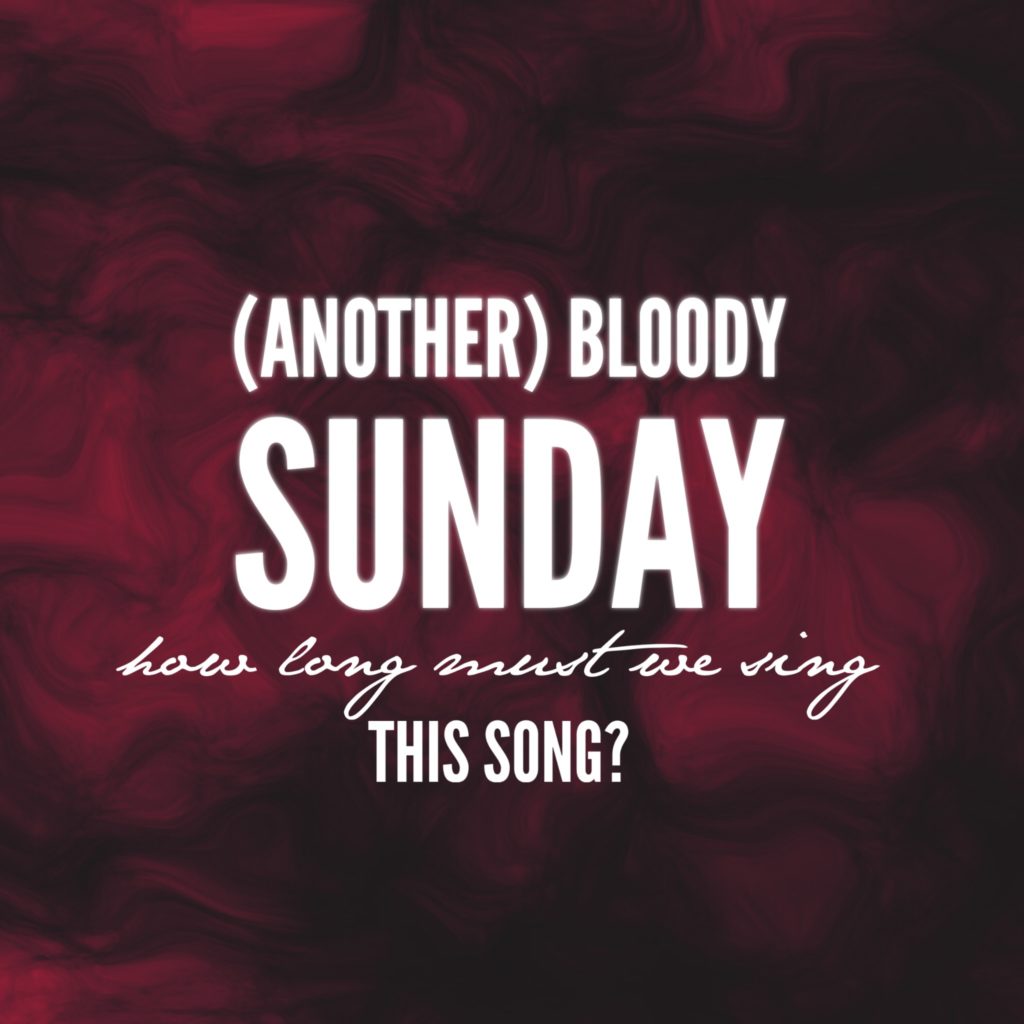
I can’t believe the news today
Oh, I can’t close my eyes
And make it go away
How long
How long must we sing this song
How long, how long
‘Cause tonight, we can be as one
Tonight
“Sunday, Bloody Sunday” (on U2’s album, War. 1983, Island Records.)
Earlier this week, our country woke to the news of yet another Bloody Sunday. Word broke Sunday morning of the massacring of what was thought to be only 20 people in the early morning hours of June 12th before the full weight of the event hit us all – that a total of 49 people were killed by a single shooter at a popular LGBT night club. The reactions were, as one social commentator put it, predictable – not because we instinctively knew what to say, but because we have all heard and spoken a similar script too many times without enough days passing between tragedies.
In our better moments, our hearts ache at such tragic events because of the grotesque loss of life, because of senseless violence, and because of hate-filled people bent on wreaking havoc.
In our worser moments, however, we react not to the human beings affected by murderous (and troubled), hate-filled zealots, but to our sense of injustice based in part on our own political leanings. In the hours that passed between our first learning of the shooting at the Pulse nightclub, to the moments we took to social media, many Jesus followers expressed outrage about any number of issues surrounding the events but, failed to respond to those most deeply wounded.
Here’s the thing about our political leanings though – when we lean to the right or left we tend to lean further away from the things, or in the case, the people that matter most.
In 1983, the band U2 released War, their third LP, but the first album to reach the US. It opens with “Sunday, Bloody Sunday” a song that remembers the day 26 unarmed Catholic protesters in Northern Ireland were shot down by British military forces. 14 of them were killed in the streets that day.
[embedyt] http://www.youtube.com/watch?v=CqmKbhIcTn0[/embedyt]
We might expect a song like “Sunday, Bloody Sunday” to take on a political tone or to choose a side with its militaristic drum beat and aggressive guitar riffs, but instead they resist,
Broken bottles under children’s feet
Bodies strewn across a dead end street
But I won’t heed the battle call
It puts my back up
Puts my back up against the wall
and then lifting a phrase straight out of Psalm 6, a track as it were from the Bible’s ancient song book, U2 cries out,
How long
How long must we sing this song
How long, how long
‘Cause tonight, we can be as one
Tonight
This is the way of God’s people. In a culture that clammers for a choice between policy
and people, songs like these (and Psalms like these) call out to us to choose solidarity with the hurting. Whether in Derry, Northern Ireland or in Orlando Florida, and everywhere else senseless violence leaves its mark on us, The Psalms ask the question our hearts are breaking to ask
How long, Lord? How long?
These are the words given to God’s people when they hurt and when they are willing to sit with those who hurt. When we are reeling from the brokenness of this world, of the human condition, of our relationships with each other, and even, at times, their relationship with God we are invited to hold hands and sing, How long?
More than this, though, asking How long? allows our hurt to eventually give way to hope. It is the church’s way of signaling that we will not resign ourselves to a world that forever hurts, because there is hope that better days are still yet to come.
Sunday’s tragic events against the LGBT community by a self identified Islamic extremist is an opportunity for the church to reach out in love toward those who have been wounded, those family members who lost loved ones, and to those now living in with a greater sense of fear (LGBT, Muslim, or otherwise).
So, rather than feel like we have to choose between policy or people, what if we instead chose to sit along side those who are hurting and repeat those long rehearsed words, How long, Lord? How long?

